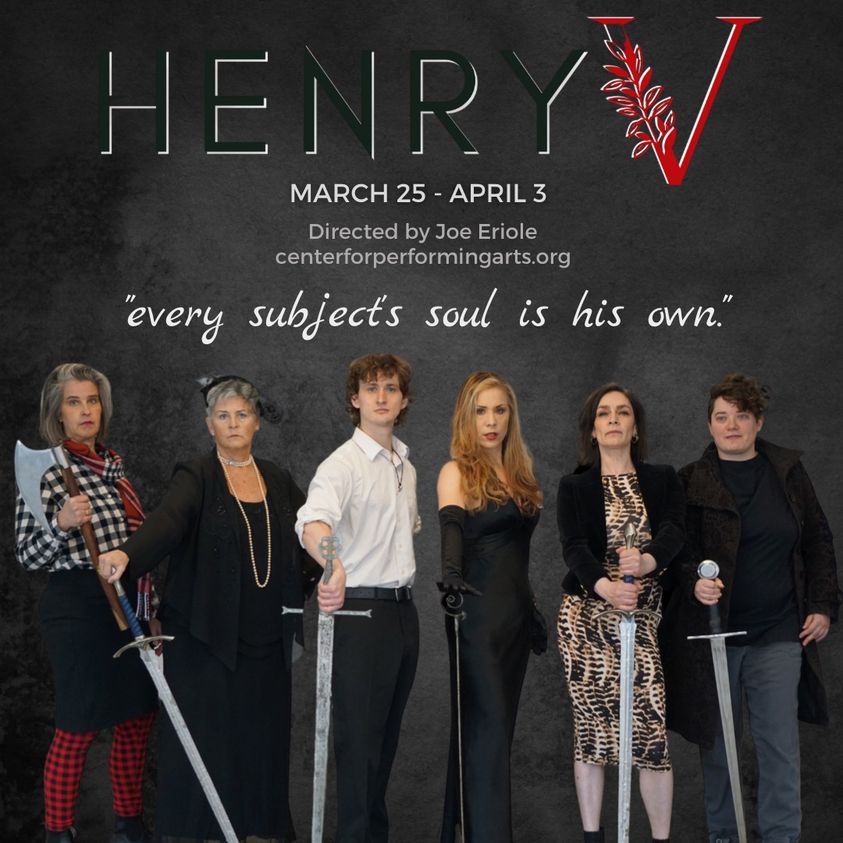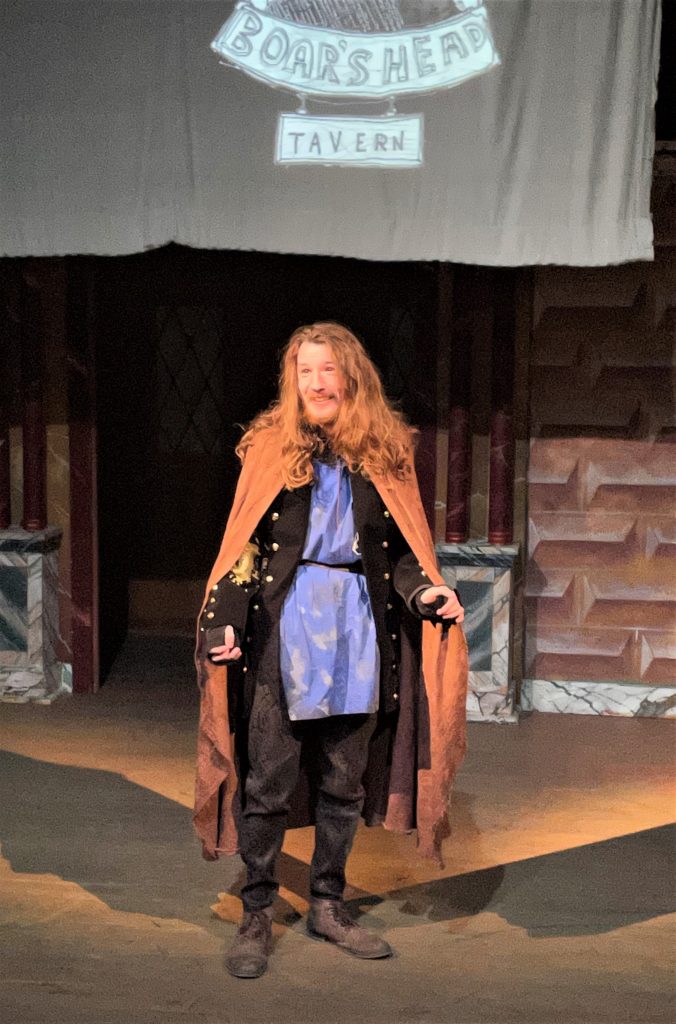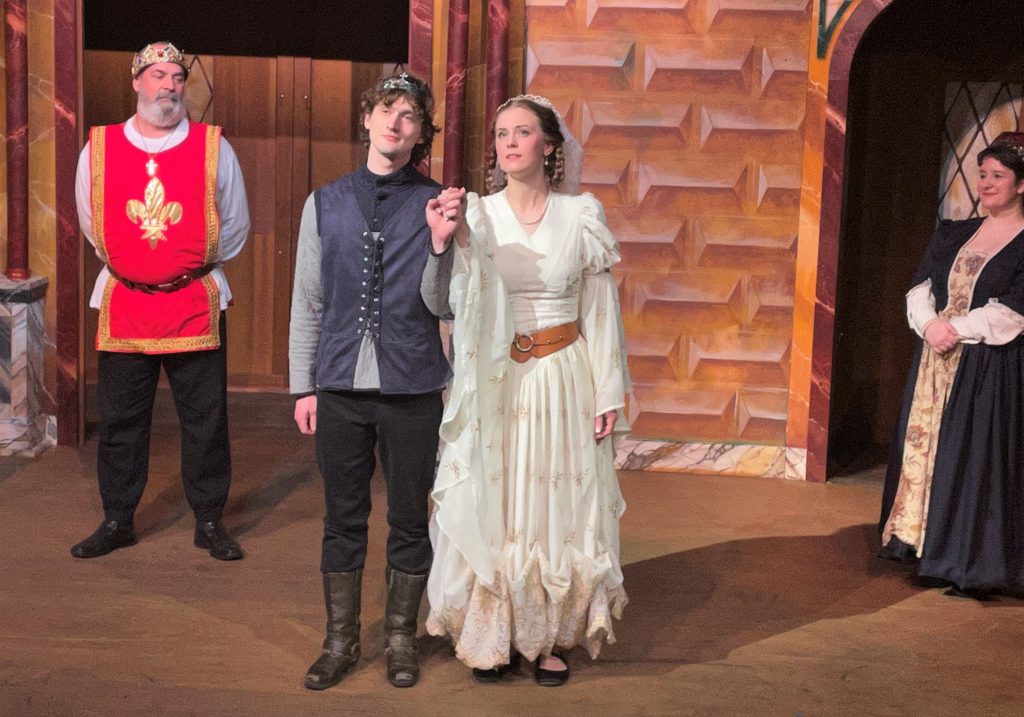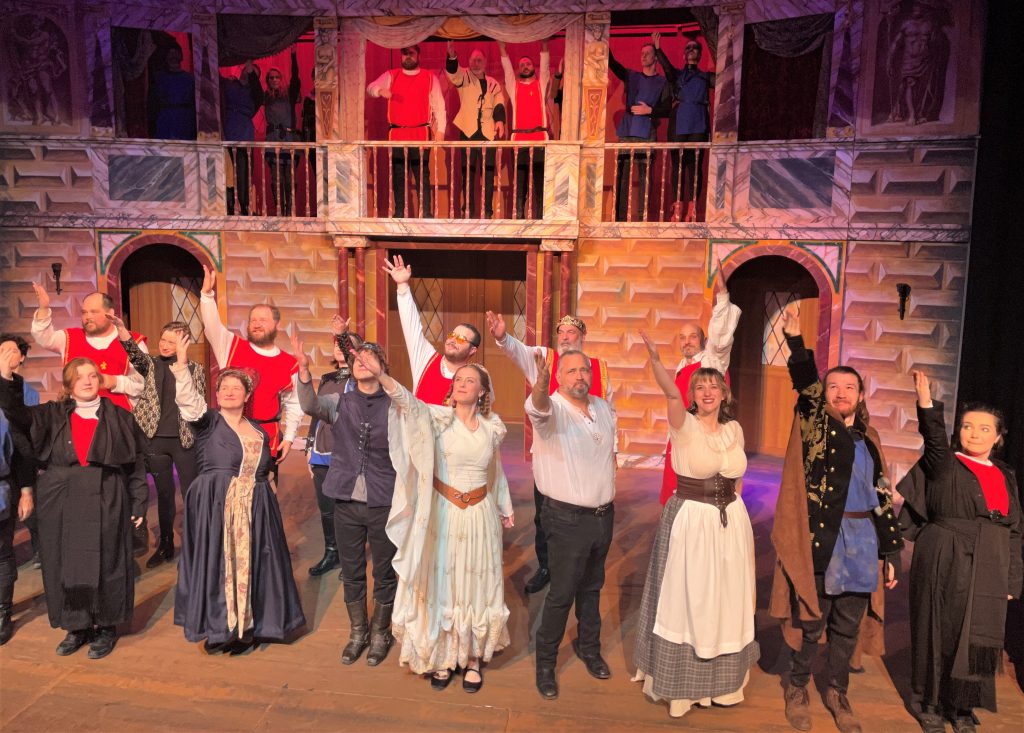
by Kevin T McEneaney
None but William Shakespeare could take a script about patriotism and war and transform it into a wonderful comedy, as he does so marvelously in Henry V, written in 1599. This production of a lengthy masterpiece (somewhat abridged in its three hours of running) at The Center for Performing Arts in Rhinebeck under the direction of Joe Eriole (who also acts as dignified narrator) projects local charm and some notable acting performances during the famous battle of Agincourt (1415).
Taylor Watson Seupel as Henry bears a passing physical resemblance to the original Henry, who, had he lived a few months longer than dying suddenly in 1422 about two weeks before his thirty-sixth birthday, would have ruled as King of Wales, England, Normandy, and France. Seupel delivers a passionate performance of a warrior with the touch of a poet and a cunning, heartfelt affability that transcends normal regency. Seupel’s superb performance echoes the current leadership of Ukrainian President Zelensky.
Josh Ezra as the comically preening Dauphin roiling in boastful vanity puts a smile on the face of everyone in the audience. Peter Kiewra as Pistol turns the trick of being both comic and sincere. Mark Colvson as Westmoreland provides augustly noble tone in his resonant voice. Alex Skovan as the French King convincingly portrays a senile figurine of the mentally disabled king who is not sure of what is happening, which was the historical situation.

Ellie DeMan as Nym is a memorably nimble delight. In this production there are more women than men, yet the ladies are believable as actors. Wendy Urban-Mead as Gower bears the lion’s share of gravity while Stephanie Hepburn as Fluellen plays the role in strictly comic fashion and her performance is one of the wonderful highlights of this production.
Kirstin Horn (also production manager) as Quickly exudes warmth, humor, and common sense while Geneva Turner as the fourteen-year-old Princess Katherine who speaks only French and finds the English language absurd delivers a genuine French accent during the winsome “Kiss Me Kate” scene which she plays with demure coyness. When Henry woos her, he asks her if she finds his face frightening. She stares in dramatic, fixated wonder—Henry had lost his right eye to an arrow a decade ago fighting in Wales, which is why his later portraits appear only in profile. Warrior Henry vaguely resembles Plutarch’s portrait of Mark Anthony in Thomas North’s 1579 translation.

There is much swordplay in this version. The three-day battle was fought by improved long-bow archers with many of the English wearing 200-pound half-century, antique, iron-ring-chain mail (while the French wore about sixty pounds of new steel plate) wielding medieval double-headed axes, pikes, and morning-star maces in a cunningly designed wooden jungle-gym built in a single day. (A menacing hatchet in the production alludes to more primitive weapons.)
Costumer Donna Letteri deserves a round of applause, as does fight choreographer Erin Hebert.
Amid muck of brutal war and sweet banter of love, Shakespeare’s humor in this production robustly shines in the most successful patriotic play ever penned.
This frolicsome and jaunty production is made possible by the Sam Scripps Shakespeare Festival; it runs through April 3, living the brief life of a passing butterfly.
